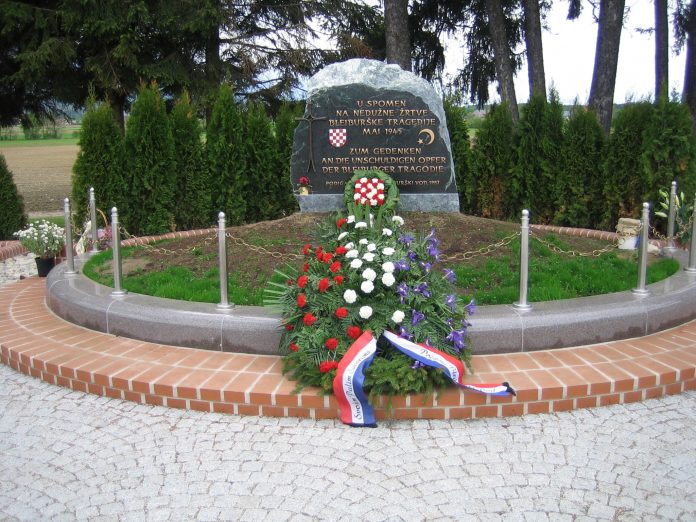The annual May 12 gathering in the small Austrian town of Bleiburg in the southern state of Carinthia draws thousands of supporters of the Nazis’ Croatian allies and far-right sympathisers. Austria’s chancellor on April 24 admitted that he is powerless to stop them.
“The event taking place is an event organised by the [Croatian] Church,” said Sebastian Kurz. “That means it is neither the decision of the federal government nor of the state premier [of Carinthia] and his administration whether this event takes place.”
He added however: “If there are breaches of [Austrian] law then of course the authorities will act in a very decisive manner.”
As reported by the Agence France-Presse (AFP), the memorial remembers the killing of sympathisers of Croatia’s Ustasha regime and others at the hands of communist partisans at the end of World War II in and around Bleiburg. The number of those killed is still debated. Estimates vary from a few dozen to tens of thousands.
The Ustasha were allied to Nazi Germany and persecuted and killed hundreds of thousands of ethnic Serbs, Jews, Roma and political opponents, many in the Jasenovac death camp. But in recent years the ceremony has drawn more than 10,000 people including Croatians who still revere the Ustasha as well as neo-Nazis from across Europe.
Austria’s DOW resistance archive centre, which specializes in documenting Nazism and neo-Nazism, has called Bleiburg “the biggest fascist meeting in Europe”.
The state premier of Carinthia, Peter Kaiser, told public radio on April 24 that Austria should ban Ustasha symbols in the same way that Nazi insignia are outlawed, reported AFP.
Meanwhile, church authorities in Carinthia have written to their Croatian counterparts reminding them that the event must be exclusively religious, with no political speeches, symbols, uniforms or banners.

